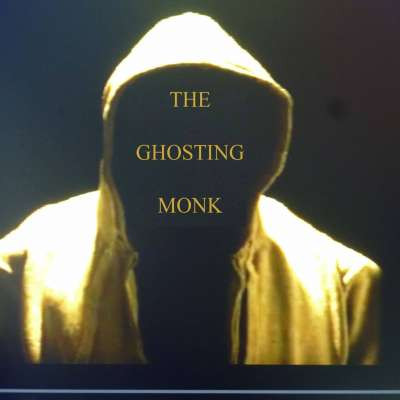The Power Of The Loner - Miyamoto Musashi
How Miyamoto Musashi Mastered the Art of Being Alone
More Similar Videos: https://youtu.be/XydFfH-Yr3g
https://youtu.be/_oz12gS1ZQg
#wisdom #selfimprovement #quote #history #miyamotomusashi #musashi
About the video:
"Discover the life-changing power of solitude through the perspective of the renowned samurai, Miyamoto Musashi. In this video, we explore Musashi's philosophy, delving deep into his works such as Dokkodo - "The Path of Walking Alone" and the infamous "Book of Five Rings". As we unravel Musashi's 21 principles, we reveal how embracing solitude can enrich our lives.
A self-made man, the lone samurai, Musashi's teachings go beyond swordsmanship and into a deep understanding of life itself. His quotes inspire millions, while his life stands as a testament to his philosophy.
The video includes insights from Musashi's Dokkodo and other works, discussing how they can be interpreted and applied today. As we journey through Musashi's life, we also uncover the transformative power of the loner and how walking alone can lead to self-discovery and personal growth.
Whether you're familiar with Musashi's philosophy or new to his teachings, this video provides an in-depth look at the samurai's profound insights on solitude. It's time to embrace the path of walking alone. Join us as we unravel the wisdom of Miyamoto Musashi. #MiyamotoMusashi #Dokkodo #ThePathOfWalkingAlone #BookOfFiveRings #Samurai #Philosophy"
0





































 Richie From Boston
Richie From Boston
 Redacted News
Redacted News
 TheSaltyCracker
TheSaltyCracker
 X22 Report
X22 Report
 JudgeNapolitano
JudgeNapolitano
 Life_N_Times_of_Shane_T_Hanson
Life_N_Times_of_Shane_T_Hanson


 Sant77
Sant77
 mrghoster
mrghoster
 RT
RT

 Grims Dungeon Of Degeneracy
Grims Dungeon Of Degeneracy
 TateSpeech
TateSpeech

 Stefan Molyneux
Stefan Molyneux
 Timcast IRL
Timcast IRL

 Coach_Corey_Wayne
Coach_Corey_Wayne
Log in to comment
https://en.wikipedia.org/wiki/Miyamoto_Musashi
https://en.wikipedia.org/wiki/Dokk%C5%8Dd%C5%8D
The "Dokkōdō" (Japanese: 獨行道) ("The Path of Aloneness", "The Way to Go Forth Alone", or "The Way of Walking Alone") is a short work written by Miyamoto Musashi a week before he died in 1645. It consists of 21 precepts. "Dokkodo" was largely composed on the occasion of Musashi giving away his possessions in preparation for death, and was dedicated to his favorite disciple, Terao Magonojō (to whom the earlier Go rin no sho [The Book of Five Rings] had also been dedicated), who took them to heart. "Dokkōdō" expresses a stringent, honest, and ascetic view of life.
Principles
The 21 principles of Dokkodo:
1. Accept everything just the way it is.
2. Do not seek pleasure for its own sake.
3. Do not, under any circumstances, depend on a partial feeling.
4. Think lightly of yourself and deeply of the world.
5. Be detached from desire your whole life long.
6. Do not regret what you have done.
7. Never be jealous.
8. Never let yourself be saddened by a separation.
9. Resentment and complaint are appropriate neither for oneself nor others.
10. Do not let yourself be guided by the feeling of lust or love.
11. In all things have no preferences.
12. Be indifferent to where you live.
13. Do not pursue the taste of good food.
14. Do not hold on to possessions you no longer need.
15. Do not act following customary beliefs.
16. Do not collect weapons or practice with weapons beyond what is useful.
17. Do not fear death.
18. Do not seek to possess either goods or fiefs for your old age.
19. Respect Buddha and the gods without counting on their help.
20. You may abandon your own body but you must preserve your honor.
21. Never stray from the Way.
http://www.hyoho.com/Hyoho6.html
Yoyo no michiwo somukukoto nashi - In no way should one act contrary to the great future you have before you.
: Mi ni tanoshimi o takamazu - Don't Try and look for an easy life.
Yorozu ni iko no kokoro nashi - Don’t harbor a prejudice or have an attitude about everything.
Iko no kokoro nashi also means Satto jizai. Satto means one’s homeland or motherland. The possibility effortless birth.
Mi o asaku omoi yo o fu kaku omou - Consider your superficiality and have profound thoughts for others.
Issho no aida yokoshin omoazu - Forget about human desire
Waga koto ni oite kokai wo sezu - Never have regrets about oneself or what you have done.
Zen aku ni ta wo netamu kokoro nashi - There should be no mind of enviousness in right or wrong
Izure no michi nimo wakare wo kanashimazu - Never have a mind of adherence and attachment to all things..
Jita tomoni urami kakotsu kokoro nashi - There should be no thought of bearing a grudge against each other.
Rembo no michi omoi kokoro nashi - There is no time for thinking about a love life..
Mono goto ni suki konomu koto nashi - One should not have like or dislikes for things.
Shitaku ni oite nosomu koto nashi - Do not have preference to a particular domicile.
Mi hitotsuni bishoku o konomazu - As to the choice of delicious food with relation to society in general.
Dai mono naru furuki dogu shoji sezu - One should never let future generations become attached to old weapons.
Issho no aida yokoshin omoazu - Forget about human desire.
Wagami ni itari monoimi suru koto nashi - One should avoid superstition and taboo.
Dai mono naru furuki dogu shojisezu - To use equipment that you consider important and not to keep that which is of no use.
Michi ni oite wa shi o itowazu omou - Follow your way with preparedness for death
Roshin ni zaiho shoryo mochiyuru shoryo ni kokoro nashi - As you get old your gained possessions are not of great importance.
Bushin wa totoshi bushin o tanomazu - Respect the Gods and Buddha but do not count on them.
Mi o sutetomo myori wa sutezu - Do not abandon your good name, even if it means abandoning your own life.
Tsune ni hyoho no michi wo hanerazu - Do not stray from the path of Hyoho.
https://web.archive.org/web/20....081218202853/http://
https://web.archive.org/web/20....070220084545im_/http
https://web.archive.org/web/20....070220084327im_/http
http://www.kampaibudokai.org/MusashiArt.htm
https://web.archive.org/web/20....190125131917/http://
Interesting!